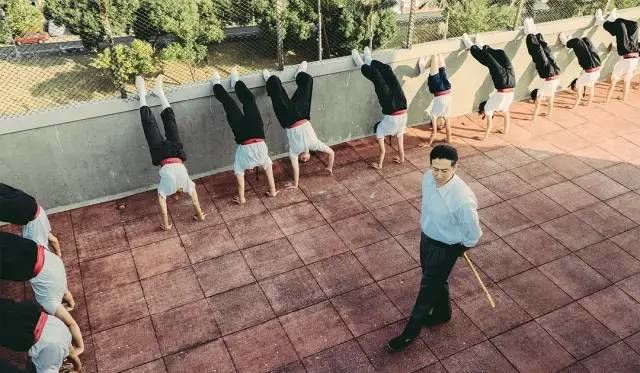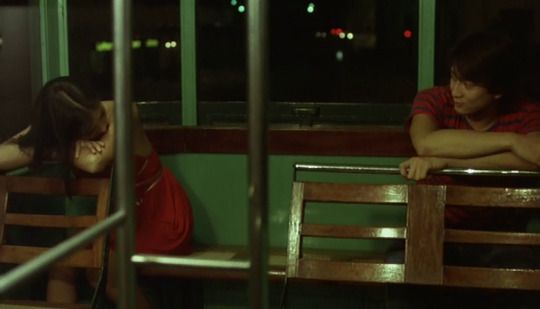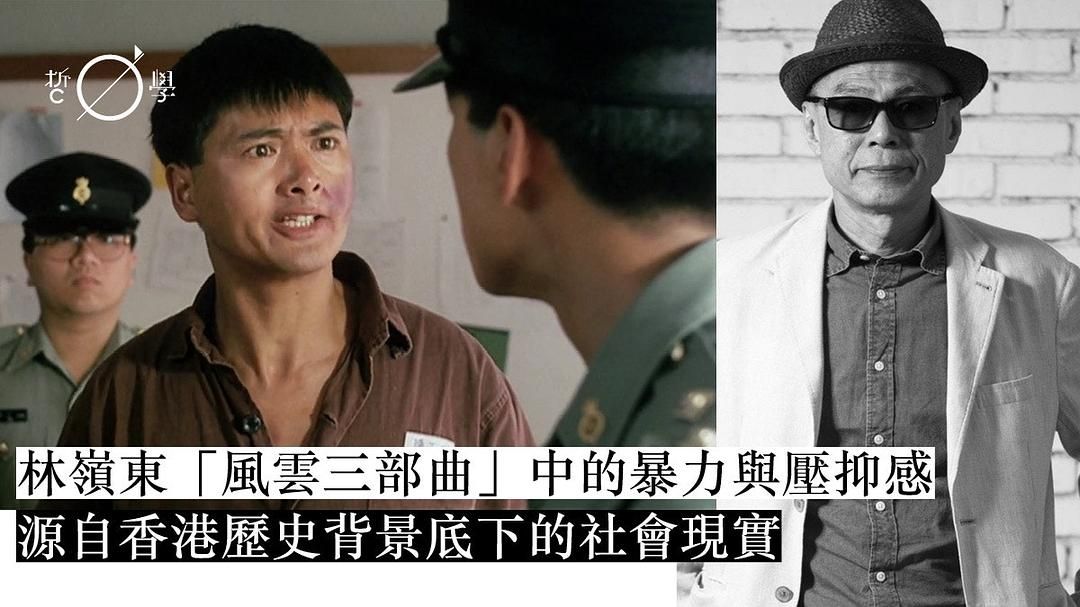"The Band of Seven": a "master" work that goes its own way
Just like the rundown of a concert, a movie that gathers short films from various directors is like putting in the EPs of different singers. The artistic crystallization obtained from different lives can only be achieved by careful arrangement and combination.
The project of "The Band of Seven" has taken the lead eight years ago. The project is planned to be directed by eight Hong Kong hall-level directors, each shooting a short film from a different era. The premise is ambitious, and the finished film is the first to be screened in Cannes, proving the enduring charm of Hong Kong cinema. But after a few years, the final film was finally released in the mainland, but it was far from satisfactory to fans after seeing it quickly.
"Practice" is almost the beginning. In the 1970s in Hong Kong, on the rooftop, martial arts masters from the south came to Hong Kong to teach and teach, and the sky flew over a super-low giant plane. This is the continuous image of Hong Kong Film Day. The illusion of "Yuantai No. 7", compared to Yang Fan's literati demeanor, although Sammo Hung was born in "red trousers", in terms of this scene alone, it is no less than in charm and artistic conception, precisely because of his private martial arts practice Memories are also the early impressions of Hong Kong movies.

A certain continuation can also be seen in Yuan Heping's "Return". The "Oriental Hollywood" in the 1990s is full of talents. Many directors, actors and works have traveled across the ocean to update the type of Hollywood movies and integrate Hollywood Movies with plot design and Hong Kong martial arts elements have gradually transformed into another symbol of Hong Kong movies. Looking back at the genres of Hong Kong films in the millennium period, "Twin Thieves", "Family", "New Police Story", etc., have all become famous works of that year. The plot of "Return" continues its advantages. The action and comedy elements go hand in hand. Yuan Hua sends his granddaughter to school. He meets two gangsters on the street. The film texture and Cantonese dialogue are in the original, declaring that this is an authentic millennial Hong Kong film sketch. In addition, although the plot is set in 1997, the focus is not on the "return" of the big era, but on the personal emotions of "return", which is heartwarming and moving.
On the other hand, compared to the action films that have attracted worldwide attention, the other side of Hong Kong films is very academic. "The Principal" depicts the warmth of ordinary Hong Kong citizens with meticulous brushstrokes. The children who dropped out of school grew up and became the ones who cared about the principal the most. In the simple 1960s, there was a lot of humanity and Anhua. Another "Farewell to the Night" tells the sentiments of the literati in the 1980s, formalized art design and exaggerated performances. The girl "will cry on the phone when she returns to the UK tomorrow", and she releases her youth with her boyfriend on the last night at home. Shao Ai, a metaphor for the relationship between Hong Kong and the United Kingdom. As shocking as Tan Jiaming's "Youth on Fire" before, if the two have sex on the bus, it is a confused life's resistance to nothingness. In "Late Night Harbor", "You will disappear soon and you will not return", but it is doomed. The emotions of ordinary people are destined to disappear under the times.

"Youth on Fire"
After 1997, To Qifeng, who became the representative of another type of Hong Kong film, this time filming "Gold everywhere" tells the story of the golden age that makes people excited, speculating in stocks and properties, a peaceful and prosperous age, and a wave of gold fishing. Several young people are in SARS. The next tea restaurant missed a good opportunity. This time, the young people did not raise their guns to confront each other, but left a lonely back for a few midnights, which is a moving profile of the lost generation of the financial metropolis. Tsui Hark's "Deep Dialogue", wrapped in several plot perspectives, also bursts with dramatic energy in a single space, but it is no longer based on AD, Hong Kong does not exist in the past, nor does it exist in the present, gradually triggering the illusion of time.
And the highlight of the seven works is Lin Lingdong's posthumous work "Lost". The angry and angry young people who filmed the "Fengyun Trilogy" in those years, this time, they showed their affectionate gaze towards Hong Kong, from big to big. The synagogue, the former harbour in the photo, went to the crowded Sheung Wan, and then to the housing estates in the New Territories. We followed the footsteps of the camera and swam around Hong Kong. In the final film, my father's ashes drifted in the rivers of the New Territories, and Guanghui returned to dust in his life. How many heroes, although they are gone, their backs are still heroic. To Qifeng said that his old friend is like the footless bird in "A Fei Zhengzhuan". He has properties in Japan, Vancouver and Shanghai. He has lived in many places and has not spent much time in Hong Kong, but this filming tells the deep nostalgia of the only family. , only to know his sincere heart for Hong Kong.

Although the film has many remarkable points, the flaws are still obvious. For example, "Farewell to the Night" is not beautiful enough in production, and personal emotions have become artificial, which is expected to attract a lot of bad reviews. On the macro theme, John Woo was absent from the 1970s, and the time span of each story was not uniform, which was essentially a digression. The directors have already gone their separate ways and have different interests on the road to film, and they will inevitably appear disorganized when they are put together, leaving a few strands of emotional knots that have been ironed out. Compared with the Hong Kong film epic narrative of "Eight and a Half", it is more difficult for the "Seven Band" to achieve harmony. He still wanted to argue and forgot.
Like my work? Don't forget to support and clap, let me know that you are with me on the road of creation. Keep this enthusiasm together!
